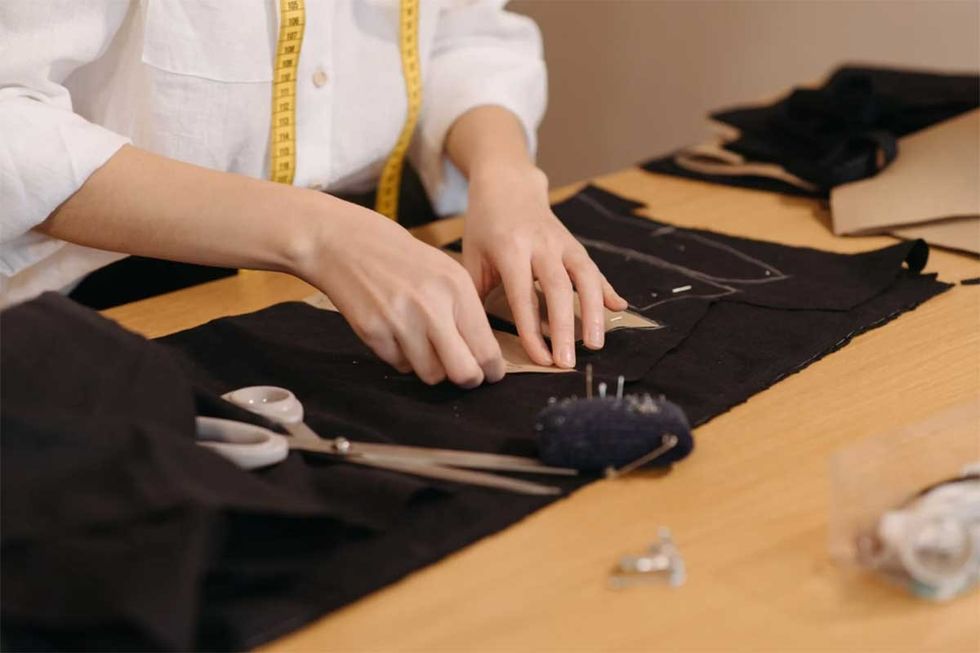Alanis Morissette's 1995 song 'Ironic" was a massive hit, making the top five in Australia, Canada, the U.S., and Norway.
It would go on to be nominated for two Grammys, and its video featuring Morissette singing in a large automobile would be nominated for six MTV Video Music Awards. But the song has drawn more than a few raised eyebrows from pedants across the English-speaking world for being about coincidences, not irony. But who cares? It's still a good song.
Twenty years later, Morissette updated her song with the help of "The Late Late Show" host James Corden to reflect modern problems, including Facebook, vaping, Netflix, and Southwest flights. She even made fun of her original song singing, It's singing 'Ironic,' but there are no ironies / And who would've thought it figures?"

An old friend sends you a Facebook request
You only find out they're racist after you accept
There's free office cake on the first day of your diet
It's like they announce a new iPhone the day after you buy it
And isn't it ironic, don't you think?
It's like swiping left on your future soulmate
It's a Snapchat that you wish you had saved
It's a funny tweet that nobody faves
And who would've thought it figures
It's a traffic jam when you try to use Waze
A no-smoking sign when you brought your vape
It's 10,000 male late-night hosts when all you want is just one woman, seriously!
It's singing the duet of your dreams, and then Alanis Morissette shouting at you
And isn't it ironic, don't you think?
A little too ironic, and yeah I really do think
It's like you're first class on a Southwest plane
Then you realize that every seat is the same
It's like Amazon but your package never came
And who would've thought it figures
It's like Netflix but you own DVDs
It's a free ride but your Uber's down the street
It's singing "Ironic," but there are no ironies
And who would've thought it figures
Watch the hilarious video from "The Late Late Show" below:
You can also watch the original music video from 1995 here:
This article originally appeared nine years ago.

















 Janitor mops a hallwayCanva
Janitor mops a hallwayCanva A group of volunteers clean up trash from a fieldCanva
A group of volunteers clean up trash from a fieldCanva A monkey looks at its reflection in a mirrorCanva
A monkey looks at its reflection in a mirrorCanva A happy woman holds up a smiley face balloonCanva
A happy woman holds up a smiley face balloonCanva

 A woman feeling under the weather lies in bedCanva
A woman feeling under the weather lies in bedCanva A Carbon monoxide alarmCanva
A Carbon monoxide alarmCanva A happy woman sips from a coffee mugCanva
A happy woman sips from a coffee mugCanva
 Representative Image: Busy hands working on a garment.
Representative Image: Busy hands working on a garment.  "SPEECHLESS!" Facebook I
"SPEECHLESS!" Facebook I  "God is really good!"Facebook I
"God is really good!"Facebook I 
 A family holding hands.
A family holding hands. 
 Representative Image: Money changing hands.
Representative Image: Money changing hands.  Representative Image: It seemed like a great tip at first.
Representative Image: It seemed like a great tip at first.  Image Source: Reddit |
Image Source: Reddit |  Image Source: Reddit |
Image Source: Reddit |  Image Source: Reddit |
Image Source: Reddit | 
 Representative Image: Disney World made the perfect surprise.
Representative Image: Disney World made the perfect surprise.  Image source: TikTok |
Image source: TikTok |  Image source: TikTok |
Image source: TikTok |  Image Source:
Image Source:
Problematic homework question
A student’s brilliant homework answer outsmarted her teacher's ridiculously sexist question
From an early age, children absorb societal norms—including gender stereotypes. But one sharp 8-year-old from Birmingham, England, challenged a sexist homework question designed to reinforce outdated ideas.
An English teacher created a word puzzle with clues containing “UR.” One prompt read “Hospital Lady,” expecting students to answer “nurse.”
While most did, Yasmine wrote “surgeon”—a perfectly valid answer. Her father, Robert Sutcliffe, shared the incident on X (formerly Twitter), revealing the teacher had scribbled “or nurse” beside Yasmine’s response, revealing the biased expectation.
For Yasmine, the answer was obvious: both her parents are surgeons. Her perspective proves how representation shapes ambition. If children only see women as nurses, they internalize limits. But when they witness diversity—like female surgeons—they envision broader possibilities.
As Rebecca Brand noted in The Guardian: “Their developing minds are that little bit more unquestioning about what they see and hear on their screens. What message are we giving those impressionable minds about women? And how might we be cutting the ambitions of little girls short before they've even had the chance to develop properly?”
X users praised Yasmine while critiquing the question. Such subtle conditioning reinforces stereotypes early. Research confirms this: a study found children as young as four associate jobs with gender, with girls choosing “feminine” roles (e.g., nursing) and boys opting for “masculine” ones (e.g., engineering).
Even preschoolers avoided careers misaligned with their gender, proving sexist conditioning begins startlingly young.
- YouTube www.youtube.com
The problem spans globally. Data from 50 countries reveals that by age 15, girls disproportionately abandon math and science, while boys avoid caregiving fields like teaching and nursing. This segregation perpetuates stereotypes—women are underrepresented in STEM, and men in caregiving roles—creating a cycle that limits both genders.
- YouTube www.youtube.com
This article originally appeared last year.